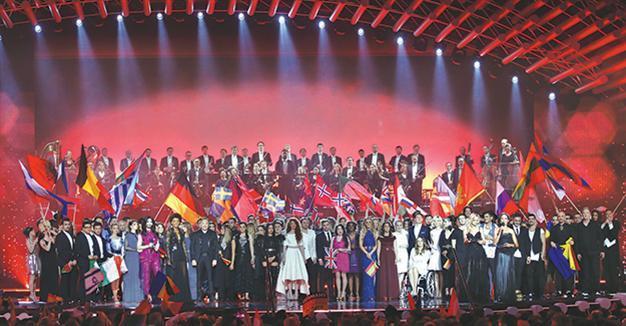Eurovision shakes up voting for ‘better TV’
STOCKHOLM - Agence France-Presse

The Eurovision Song Contest final on May 23, 2015 in Austrian capital Vienna.
The Eurovision Song Contest is overhauling the way it presents voting results this year to keep viewers guessing about who has won until the very end of the kitsch music spectacle.
The annual festival, now in its 61st year, features acts ranging from the brilliant to the bizarre and pulls in an TV audience of around 200 million worldwide.
But in recent years, the way votes are announced has sometimes meant it was obvious who would win long before the end of the marathon finals show, which usually lasts well over three hours.
This year the presentation of scores will be split between national juries and viewers’ votes under a system that organizers hope will add more suspense to the big night.
“In previous years the winner has been known for up to 20 minutes before the end of voting and that’s not good TV,” this year’s executive producer Martin Osterdahl, responsible for organizing the 2016 show in Stockholm, said in a statement on Feb. 19.
The Swedish capital will host the show on May 14 after chiseled hunk Mans Zelmerlow won the country its sixth crown last year.
The first half of the results will be familiar to viewers, as representatives from each country announce the points compiled by their respective juries, accounting for 50 percent of the outcome.
In a new twist, the highest score of 12, the competition’s famous “douze points,” won’t be handed out by the juries until the lower points (one to eight and 10) from all countries have been revealed.
The major change comes with viewers’ votes submitted by phone, SMS or using the official smartphone app.
Televoting from all countries will be combined and announced together after the jury scores, meaning an entry could be awarded hundreds of points to claim victory in the show’s final moments.
